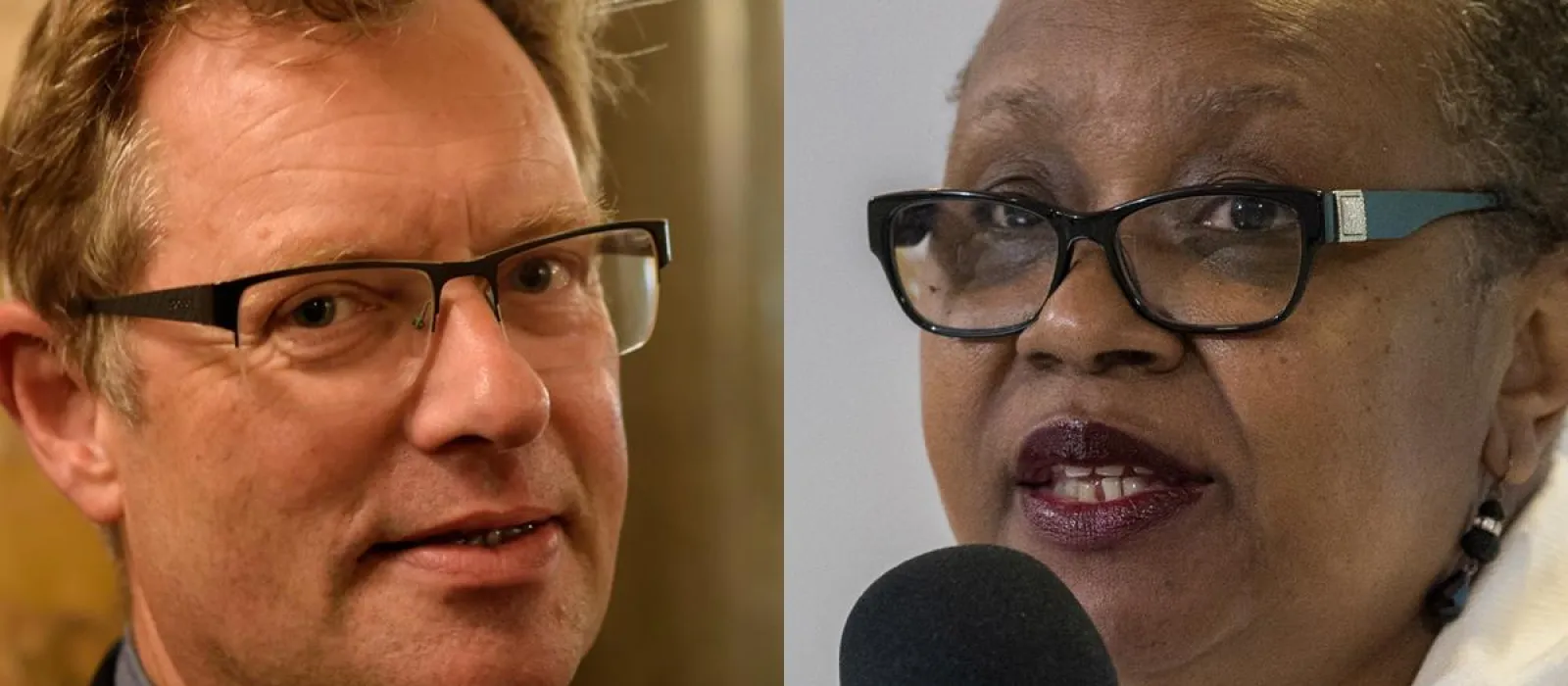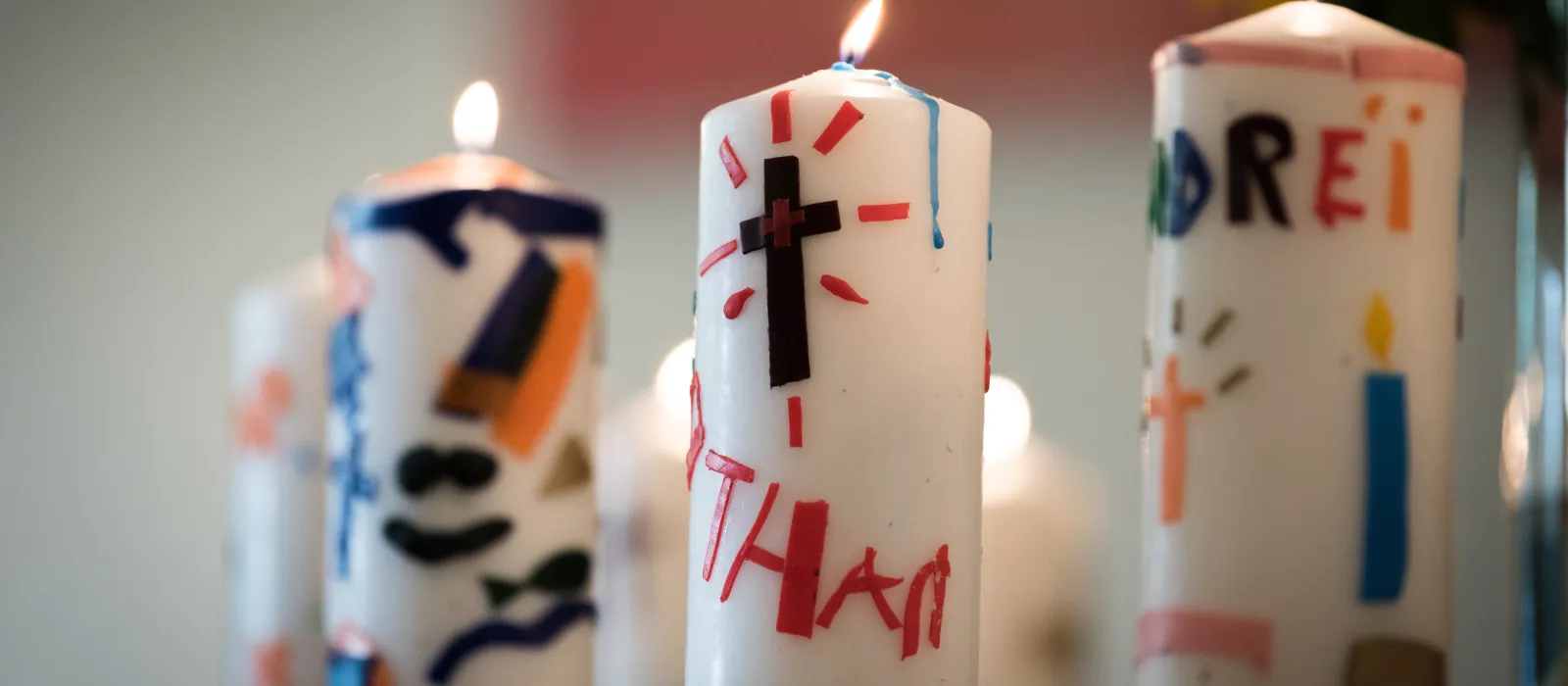Module 1: How we can perceive God's work in the world around us, and experience that presence of the Holy Spirit as a gift and a promise

Module 1: How we can perceive God's work in the world around us, and experience that presence of the Holy Spirit as a gift and a promise
Speakers: Professor Niels Henrik Gregersen, from the University of Copenhagen, Rev. Dr Beverly Wallace, Associate Professor of Congregational and Community Care, Luther Seminary
First monthly webinar in a series on LWF study process
(LWI) – The first in a series of monthly webinars on “Being Lutheran” explores the freedom to participate in the transformation of societies.
Examining a wide range of topics from Martin Luther’s teachings to the lyrics of singer-songwriter Beyoncé, participants from every region of The Lutheran World Federation (LWF) took part in a webinar on 1 July to discuss the meaning of liberation and participation in God’s transformational work in the world.
The online discussion, moderated by the LWF Program Executive for Identity, Communion and Formation Rev. Dr Chad Rimmer, was the first in a series of monthly webinars exploring the diversity of ways that Lutherans express their faith in different countries and cultures. The ‘Being Lutheran’ series is part of the second phase of a study process that began with a global consultation in Addis Ababa, Ethiopia, in October 2019.
Leading the discussion were Danish theologian and philosopher, Prof. Niels Henrik Gregersen and African-American pastor and professor of Congregational and Community Care, Rev. Dr Beverly Wallace. Speaking from their diverse contexts and experiences, both presenters reflected on the way Christians can discern the Holy Spirit’s call to participate in God’s work of healing and reconciliation.
Collaboration for the common good
Gregersen noted that he lives and works in a majority Lutheran country, where 75 percent of the population belongs to the Evangelical Lutheran Church in Denmark. At the same time, he said, most people do not talk much about God in their daily lives and their “approach to Christianity and the church is often more intuitive than doctrinal.” In the context of this “secular-minded society,” he said the church should be attentive to the construction of a “collaborative democracy,” affirming governments that legislate for the common good and criticizing them where they fail to protect all members of society.
Referring to Luther’s reflections on the family as a household of faith, Gregersen said it is important to see our churches and even our wider societies “as families where we have mutual obligations to one another.” As people of faith, we are also called to work together for the common good with “other truth-seeking and justice-oriented communities, regardless of whether they are Christian or not,” he reflected.
In the same way that we see Christ as both “the personal face of God” and the “deep incarnation” of compassion towards those around us, Gregersen said we need to “develop a corresponding deep sense of the Holy Spirit in the midst of our ordinary lives, in our different households.” In this way, we can discern the Spirit as “a life-giver, building up communities of faith hope and love” and calling us to speak out against injustice, aggression, exclusion and narrow-mindedness.
Rimmer reflected that “Lutherans have always been grounded in the Word. And this conversation helped us to remember that God’s Word, or Wisdom that created the cosmos continues to reconcile, heal and transform human society and all creation, and is the same Spirit that calls to us in baptism to find our place in this liberative work in the world.” Through diverse communities, genders, languages, and cultures, “that Word nurtures unique gifts in each one of us to perceive the Spirit's work, and participate in this reconciliation,” he added.
Called to pursue freedom
Wallace spoke about perceiving and participating in God’s work, from the perspective of a womanist theologian living in North Carolina where there are very few African-American Lutheran congregations. As a pastor with the Evangelical Lutheran Church in America (ELCA) for the past 21 years, she said she has been “engaging in the work of God in a practical way” as “a daughter of Africa living in the American context,” focusing her pastoral work on care of the sick and dying.
Looking at the work of the Spirit “through the lens of mysticism and imagination,” Wallace asked what it means to affirm that “God wants abundant life for his people.” Grounded in the belief that “I cannot know anything without the power of the Holy Spirit,” she said her understanding of God at work in the world is experienced through the struggle for freedom, especially that of African-American women like herself. Citing the lyrics of Beyoncé’s song ‘Freedom’, she said the singer’s words encapsulate the experience of so many African-American women whose liberty continues to be denied. The Spirit is what moves those who experience this denial to “engage in creative struggle” or “mystical activism,” pushing us “towards freedom of body, mind and spirit,” she affirmed.
“Since we are saved by God’s grace,” Wallace concluded, we are free to pursue this “conscious and intentional work” of addressing injustice manifested through racism, classism and sexism. Recalling the anguished cry of George Floyd to his mother as he was being murdered by a police officer in Minneapolis, she said we continue to hear “the Spirit calling us to act” within our own context today.
Opportunities amidst pandemic
During a breakout into smaller group sessions, participants reflected on contemporary developments in their own countries, as the COVID-19 pandemic has brought both challenges and opportunities as Lutherans in their contexts. Among them was Ria Pardede from the Protestant Christian Batak Church (HKBP), the largest Lutheran church in the predominantly Muslim nation. She shared her experience as an active member of a minority church in a country where all religions are protected by law, yet Christians are often viewed with suspicion when they engage in social or pastoral activities.
Pardede noted that the COVID-19 pandemic has opened a window of interfaith solidarity between the Islamic majority and Lutheran minority. She said, “kind deeds which were previously often suspected as an effort to convert are now welcomed with open arms.” Furthermore, worship services in the home which were previously not permitted, “are accepted since every faith must worship at home,” she added. Assisting those forced to self-isolate in their homes is based on “a community spirit where difference is no longer a priority,” she noted, asking, “Is this not the work of the Holy Spirit, the only one which can touch the heart?”



